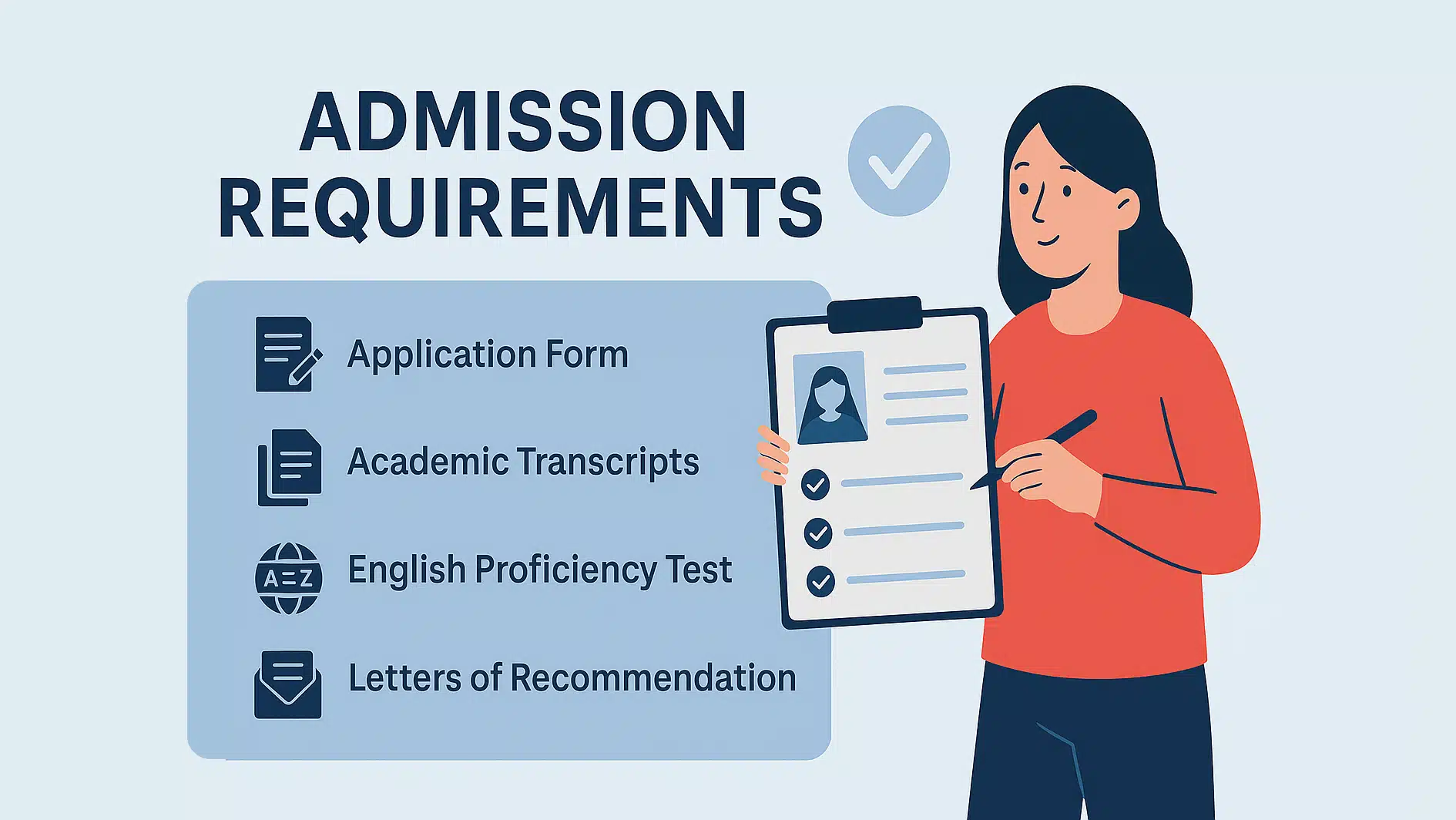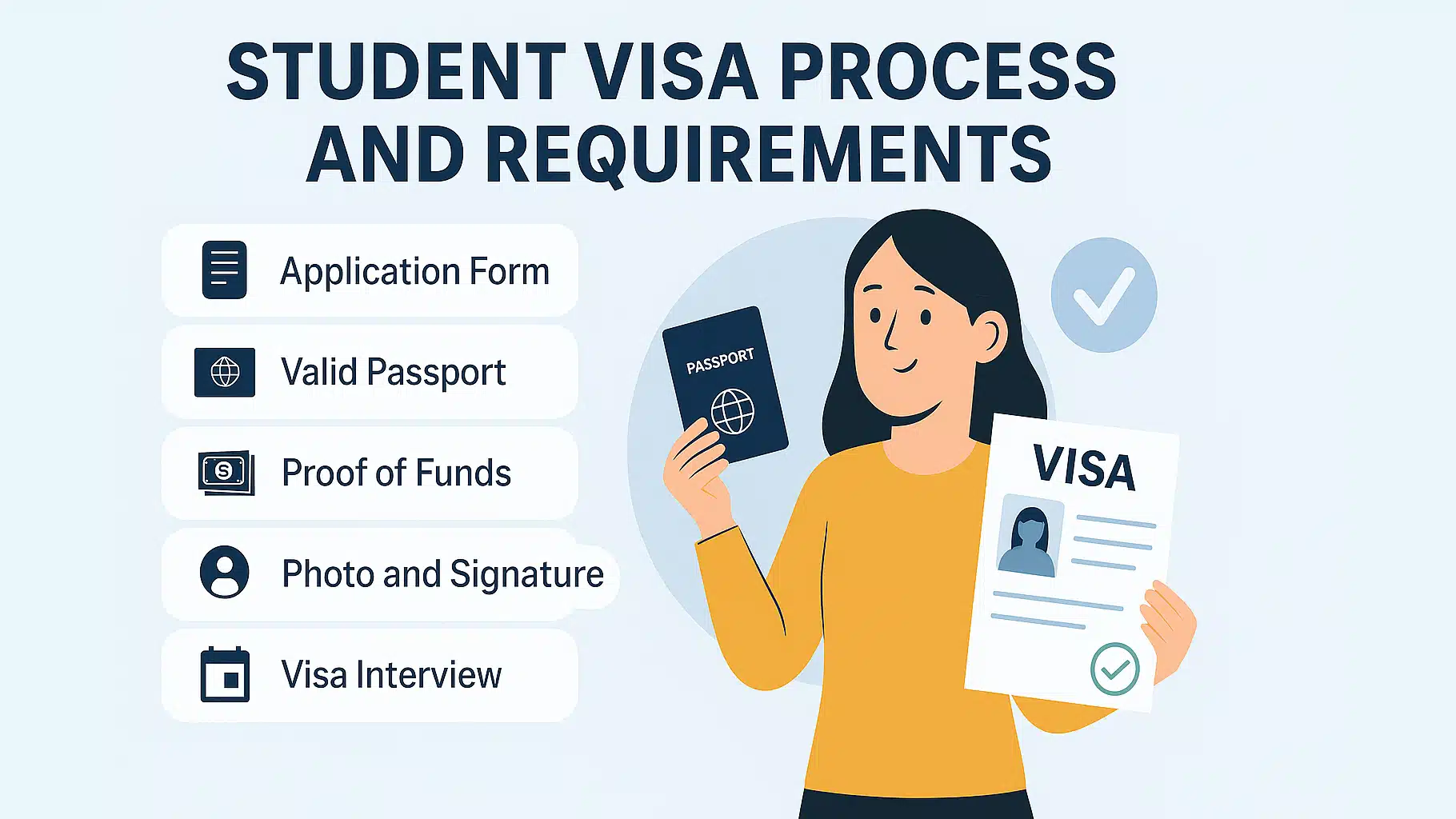Study in New Zealand
Renowned for its academic excellence and breathtaking landscapes, New Zealand has emerged as a top choice for Bangladeshi students seeking world-class education abroad. This island nation in the South Pacific combines rigorous academic standards with an unparalleled quality of life, offering students a transformative educational experience.
New Zealand’s education system stands out globally, with all eight of its universities consistently ranked among the world’s best in the QS World University Rankings. What sets these institutions apart is their innovative approach to teaching, which blends theoretical knowledge with hands-on, practical learning. This methodology cultivates critical thinking and problem-solving skills that are highly valued by employers worldwide.
Beyond the classroom, New Zealand provides an exceptionally safe and inclusive environment for international students. The country’s ranking as the world’s second safest nation in the 2023 Global Peace Index offers parents and students peace of mind. Its multicultural society warmly welcomes Bangladeshi students, helping them adapt quickly while maintaining their cultural identity.
The country’s most compelling advantages include generous post-study work rights and straightforward pathways to permanent residency. Graduates can gain valuable international work experience through post-study work visas lasting up to three years, depending on their qualification level. For those aspiring to settle abroad, New Zealand’s transparent immigration policies and skills-based residency programs present achievable long-term opportunities.
With its perfect balance of academic rigor, career prospects, and quality of life, New Zealand has rightfully become the preferred destination for Bangladeshi students aiming to launch successful global careers while enjoying an exceptional study-abroad experience.
New Zealand’s education system operates under the New Zealand Qualifications Framework (NZQF), which ensures consistent quality across all institutions. The system is divided into ten levels, from certificates to doctoral degrees, with each level building on the previous one. This framework makes it easy for students to progress between different qualification types and institutions.
New Zealand offers globally recognized qualifications under the New Zealand Qualifications Framework (NZQF).
Level | Program | Duration | Key Features |
Level 5 | Diploma | 1 year | Entry to workforce or higher studies |
Level 6 | Diploma | 1-2 years | Equivalent to 2nd year of bachelor’s |
Level 7 | Bachelor’s / Graduate Diploma | 3 years / 1 year | Full degree or specialization |
Level 8 | Postgraduate Diploma (PGD) | 1 year | Pathway to master’s |
Level 9 | Master’s Degree | 1-2 years | Research or coursework-based |
Higher education in New Zealand is offered by three main types of institutions:
- Universities: Research-focused institutions offering bachelor’s to PhD programs
- Institutes of Technology and Polytechnics (ITPs): Offering vocational and applied learning
- Private Training Establishments (PTEs): Specialized institutions offering niche programs
The academic year typically runs from February to November, with two main intakes (February and July) and some institutions offering additional intakes in between. The education system emphasizes hands-on learning, with many programs incorporating internships and industry projects, giving students valuable real-world experience before graduation.
Popular Study Programs for International Students
New Zealand offers a wide range of study options across various disciplines. Some of the most sought-after programs among Bangladeshi students include:
- Business and Management: Programs in international business, finance, and marketing are particularly popular, with universities like the University of Auckland and Victoria University of Wellington offering world-class business education.
- Engineering and Technology: With New Zealand’s growing infrastructure and technology sectors, engineering programs (especially civil, mechanical, and software engineering) provide excellent career prospects.
- Health Sciences: Nursing, pharmacy, and public health programs are in high demand due to New Zealand’s aging population and healthcare sector growth.
- Information Technology: Cybersecurity, data science and software development programs are increasingly popular given New Zealand’s thriving tech industry.
- Agriculture and Environmental Science: Given New Zealand’s strong agricultural economy and focus on sustainability, these programs offer unique learning opportunities.
- Hospitality and Tourism Management: Leveraging New Zealand’s thriving tourism industry, these programs often include practical training components.
Top Universities & Institutions
- University of Auckland (Ranked #1 in NZ)
- University of Otago (Leading in health sciences)
- Victoria University of Wellington (Strong in law & humanities)
- Massey University (Agriculture, aviation, business)
- AUT (Auckland University of Technology) (Tech & innovation focus)
Polytechnics & ITPs (Vocational & applied learning)

Admission Requirements and Application Process
Academic Requirements
For diploma programs, students typically need:
- Completion of Higher Secondary Certificate (HSC) with minimum 60% marks
- For A-level students, at least 1 C and 3 B grades
For bachelor’s degrees:
- HSC with minimum GPA of 3.5 or equivalent
- Some competitive programs may require higher grades
For master’s programs:
- A recognized bachelor’s degree with minimum 60% marks
- Relevant work experience may be required for some programs
English Language Requirements
All students must demonstrate English proficiency through:
- IELTS (Academic): Minimum 6.0 for undergraduate, 6.5 for postgraduate
- TOEFL iBT: 80 for undergraduate, 90 for postgraduate
- PTE Academic: 50-58 for undergraduate, 58-65 for postgraduate
Some institutions accept alternative proofs like previous education in English-medium institutions or through pathway programs.
Program | Academic Requirement | IELTS Requirement |
Diploma (Level 5-6) | HSC (60%) / A-Levels (1C + 3B) | 5.5 (No band <5.0) |
Bachelor’s | HSC (GPA 3.5) / A-Levels (1C + 3B) | 6.0 (No band <5.5) |
Graduate Diploma | Bachelor’s (60%) | 6.0 (No band <5.5) |
Master’s | Bachelor’s (60%) | 6.5 (No band <6.0) |
Application Documents Checklist
- Completed application form
- Academic transcripts and certificates (attested if required)
- English proficiency test results
- Passport copy
- Statement of Purpose (SOP)
- Letters of recommendation (for postgraduate)
- CV/resume (for postgraduate)
- Portfolio (for design/arts programs)
- Research proposal (for research degrees)
Application Timeline
- For February intake: Apply by September-October
- For July intake: Apply by March-April
- Processing typically takes 4-6 weeks for universities, 2-3 weeks for polytechnics
Tuition Fees and Living Expenses
Tuition Fees (Annual)
- English language courses: NZD 5,000-8,000
- Foundation studies: NZD 15,000-22,000
- Undergraduate degrees: NZD 22,000-35,000
- Postgraduate degrees: NZD 26,000-40,000
- PhD programs: NZD 7,000-10,000 (domestic fees often apply)
Living Expenses (Annual)
New Zealand requires students to show NZD 20,000 per year for living costs. Actual expenses may include:
- Accommodation: NZD 8,000-15,000
- Food: NZD 3,000-5,000
- Transport: NZD 1,000-2,000
- Utilities: NZD 1,000-2,000
- Health insurance: NZD 600-800
- Miscellaneous: NZD 2,000-3,000
Scholarship Opportunities
Several scholarships are available for Bangladeshi students:
- New Zealand Excellence Awards
- University-specific scholarships
- NZ-GRADS for PhD students
- Commonwealth Scholarships
- ASEAN Scholar Awards

Visa Application Checklist
- Valid passport
- Offer letter from NZ institution
- Proof of tuition fee payment or financial capability
- Evidence of living expenses (NZD 20,000/year)
- Medical and chest x-ray certificates
- Police clearance certificate
- Health insurance (after visa approval)
Approval in Principle (AIP) Process
The AIP system is a unique feature of New Zealand’s student visa process:
- Submit visa application with all documents after receiving offer letter
- Immigration NZ assesses application
- If approved, receive AIP (conditional approval)
- Pay tuition fees and share proof
- Receive final visa approval
This system minimizes financial risk for students as full fees are only paid after initial approval.
Visa Processing Time
- Standard processing: 4-8 weeks
- Priority processing: Available in some cases
- Medical tests can be done at approved centers in Dhaka and Chittagong
Working While Studying and Post-Study Opportunities
Work Rights for Students
- During studies: 20 hours/week
- During scheduled breaks: Full-time
- For research master’s and PhD: Full-time work allowed
Post-Study Work Visa (PSW)
- Bachelor’s/Graduate Diploma: Up to 3 years
- Master’s: Up to 3 years
- PhD: Up to 3 years
The duration depends on the qualification level and where the student studied.
Pathway to Permanent Residency
New Zealand offers several pathways to PR for international graduates:
- Skilled Migrant Category: Points-based system considering age, qualifications, work experience, and job offer
- Green List Occupations: Faster processing for in-demand occupations
- Work to Residence: After 2 years of skilled work in NZ
Key requirements for PR:
- Job offer in skilled occupation
- Minimum salary threshold (typically NZD 55,000+)
- English language proficiency
- Health and character requirements
Life in New Zealand for Bangladeshi Students
Cultural Adaptation
New Zealand’s multicultural society makes adaptation easier for Bangladeshi students. However, students should be prepared for:
- A more informal social culture
- Direct communication style
- Emphasis on work-life balance
- Outdoor-oriented lifestyle
Support Services
Most institutions offer excellent support for international students:
- Orientation programs
- Academic support services
- Career counseling
- Health and wellbeing services
- International student advisors
Bangladeshi Community
Major cities have active Bangladeshi student associations and communities that:
- Organize cultural events
- Provide peer support
- Help new students settle in
- Celebrate Bangladeshi festivals
Key Considerations Before Applying
Choosing the Right Institution
Consider:
- Program reputation and accreditation
- Location and living costs
- Industry connections
- Graduate employment rates
- Research opportunities
Financial Planning
Students should:
- Budget carefully for entire study period
- Understand all costs (tuition, living, health insurance)
- Explore scholarship options
- Consider part-time work opportunities
Career Prospects
Research:
- Job market trends in your field
- Salary expectations
- Employer sponsorship opportunities
- PR pathways in your occupation
New Zealand offers Bangladeshi students an exceptional combination of quality education, work opportunities, and pathways to permanent residency. With its safe environment, welcoming culture, and globally recognized qualifications, it’s an ideal destination for those seeking international education and career prospects. The transparent visa process, including the AIP system, provides additional security for students investing in their future.
Prospective students should carefully research their options, prepare strong applications, and plan financially for their New Zealand education journey. With proper preparation, studying in New Zealand can be a transformative experience that opens doors to global opportunities.
Frequently Asked Questions (FAQ)
Yes, for postgraduate students (Level 7 and above), partners can apply for work visas and dependent children can study as domestic students.
No strict age limit, but applicants must satisfy immigration officers of their genuine study intentions.
Yes, but you must apply for a new visa if changing your qualification level.
Relatively easy in major cities, especially in hospitality, retail, and university jobs.
You may need to leave NZ or apply for another visa category if eligible.



